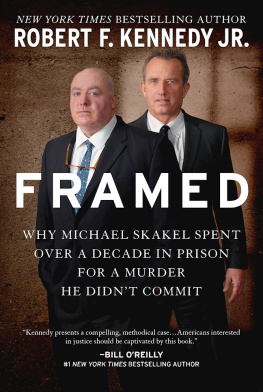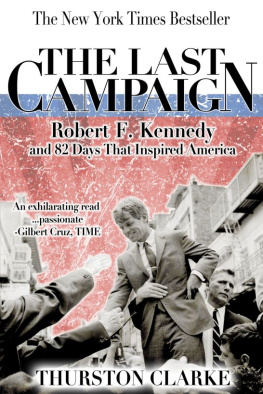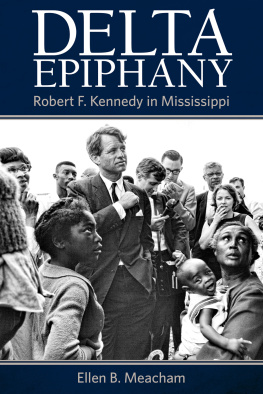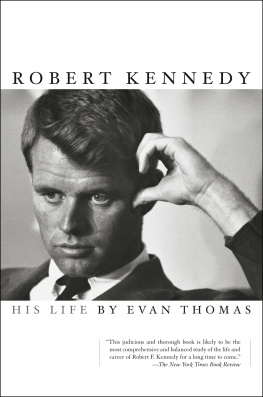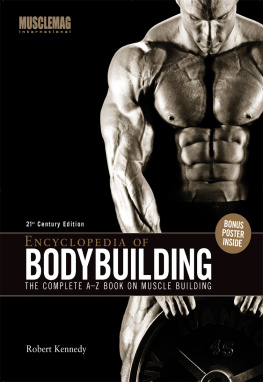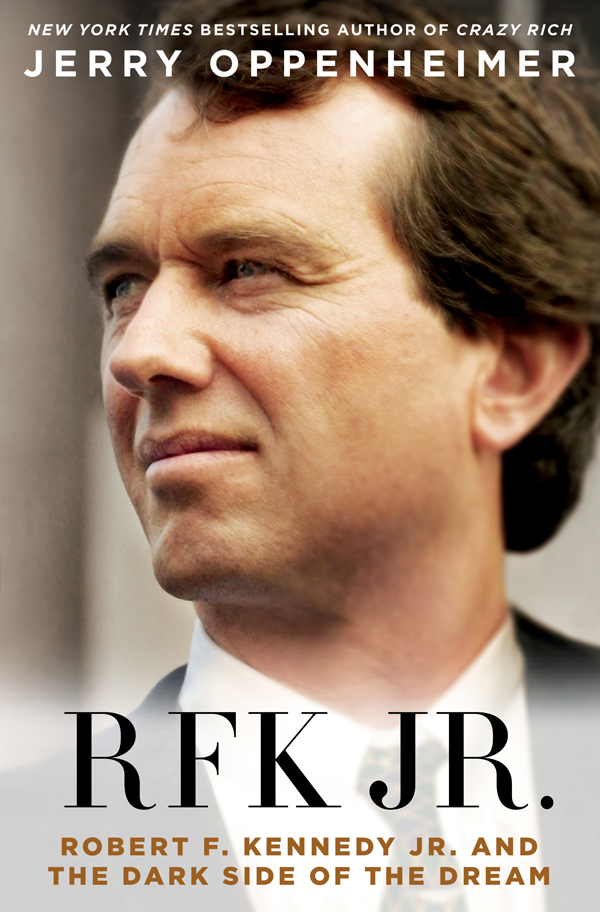Contents
Guide

The author and publisher have provided this e-book to you for your personal use only. You may not make this e-book publicly available in any way. Copyright infringement is against the law. If you believe the copy of this e-book you are reading infringes on the authors copyright, please notify the publisher at: us.macmillanusa.com/piracy.
For Caroline, Trix, Mr. R. Toby and Jesse, Louise, Julien and Max, and in memory of Cukes
This is the story of the scion of one of the most famous, most powerful, most privileged contemporary political dynasties the free world has ever known, an heir to an immense fortune who had every advantage, yet was plagued, as will be documented, by horrific addictions and paralyzing insecurities. Still, he was considered the undisputed leader of the third generation of Kennedysand one of the most polarizing. Once believed to be the standard-bearer, the future hope of the dynasty, Bobby Kennedy Jr. was seriously considered to be the clans second comingthe next Kennedy to command the Oval Office.
In the beginning, the Kennedys had high hopes for Bobby, that he would be their new symbol after the assassinations of his father and uncle, that he would invigorate the Camelot myth, that he would be the so-called royal familys shining representative.
It never happened.
As his story shows, he became the end, rather than the fulfillment, of the dream.
While he had teased the media through the years about throwing his hat into the political arena like his father and uncles before hima public service career was practically guaranteed of RFKs namesakehe always feared that the skeletons in his closet, and there were many, would be unleashed. Instead, he would curiously fall back on family values and fathering his six children from what would be two of three marriages as his reasons for not running for political office.
Instead, he made a name for himself in the less controversial but increasingly popular and sometimes glamorous environmental movement.
He had been named one of Time magazines Heroes for the Planet, heralded as one of Rolling Stone s 100 Agents of Change, dubbed by People magazine Americas Toxin Avenger, and called a self-made nemesis of big-time polluters carrying on his fathers tradition of crusading against the powerful. He was a professor of governmental law at Pace University School of Law, the co-director of the schools Environmental Litigation Clinic, president of Waterkeeper Alliance, and a senior attorney for the Natural Resources Defense Council.
Unlike the other iconic Kennedy namesake, his far more handsome first cousin and pop culture icon, John F. Kennedy Jr.John-John to an older generationBobby was far more complex, driven, and reckless, a monument to scandal, controversy, and excess, a life that paralleled the decline in the power, prestige, and politics of Americas royal family. As the Time columnist Margaret Carlson cogently once observed, When you look at the third generation of Kennedy men, much of what remains of a once powerful dynasty is good teeth, good hair and the best public relations a trust fund can buy.
All that Bobby and his cousin John shared was the Kennedy blood and the tragic assassinations of their fathers. While John, after his fathers death, was brought up by a controlling and domineering mother, but one who obsessively looked out for his care and well-being, Bobby, after his fathers death, was essentially given up by his angry, widowed mother.
With his father gone, Bobbys uncle Ted was thought to be the acting patriarch. But he had his own serious personal problems with which to contend. As a result, Bobbys sole male role model during his troubled adolescence through his even more unsettled young adulthood was a closeted and ill-at-ease homosexuala decades-long Kennedy family acolyte by the name of Kirk LeMoyne Lem Billings, who had transferred his obsessive, intimate love from the late president, beginning when they were at boarding school together, to Bobby himself.
The first time the gay bachelor spent time with young Bobby, he came away enthusiastically declaring, Ive just met the smartest little boy! Hes just like Jack! Later he would use drugs with Bobby while at the same time convincing him that he could be president one day.
As another of Bobbys first cousins, Christopher Kennedy Lawford, who early on idolized Bobby, and who like Bobby was long addicted to drugs, candidly observed: The loss of Robert Kennedy was the loss of one of the most consequential figures of that time. Bobby Jr. existentially got an enormous amount of star power carrying those initials. He also got a lot of magnetism from Lems fixation. Lem had decided that Bobby was the next bearer of Kennedy greatnessand none of us were about to argue.
President Kennedy, Bobbys uncle, considered biography his favorite literary form. The reason? It attempted to answer the question: What was he really like?
In an effort to answer that question, this, then, is Robert Francis Kennedy Jr.s story.
Ethel Skakel Kennedy gave birth to her husbands namesake, Bobby Jr., on January 17, 1954, at Georgetown University Hospital, in Washington, D.C. He was the third of her and Robert Francis Kennedys children, coming after Kathleen and Joe II in what would one day be a brood of eleven. As it happened, Bobby came into the world at an ironic moment in the Kennedy clans chronologyjust a few days after the Hollywood sexpot Marilyn Monroe married her second husband, the Yankee slugger Joe DiMaggio. In the Kennedy family drama, Marilyn would famously play a starring role as the reputed mistress of both Bobbys father and Bobbys uncle, the president, during the era known as Camelot.
Eight more siblings would follow on Bobby Jr.s heels, as his young, athletic, and zealously Catholic twenty-six-year-old mother was determined to have a bigger family than that of her revered mother-in-law, the Kennedy family matriarch, Rose Fitzgerald Kennedy, who had given birth to only nine.
But young Bobby was the special one of Ethels children, for he was named after the idolized U.S. Senator from New York, the assassinated presidential hopeful who, during JFKs ill-fated administration, had served as his brothers Attorney General of the United States, the nations highest law enforcement officer.
RFK, at twenty-nine, had been out of work during a portion of the time Ethel was carrying Bobby. He had quit the job his father, Joseph Patrick Kennedyonetime reputed Prohibition-era bootlegger, exHollywood mogul, Wall Street speculator, former U.S. ambassador to Great Britain under FDR, and notorious philandererhad secured for him through his friend Joseph McCarthy.
An Irish Catholic, an alcoholic, considered evil incarnate by many, the Republican senator from Wisconsin was chairman of the powerful Permanent Subcommittee on Investigations of the Senate Government Operations Committee, better known as the McCarthy Committee.
RFK had a law degree from the University of Virginia in Charlottesville and a diploma from Harvard when he was hired as an assistant to the McCarthy Committees general counsel. He shared his fathers and McCarthys determination to search out and destroy suspected Communists in the U.S. Army, in federal government agencies, and just about anywhere else, many of whom were innocent and whose lives were ruined. He also went along with a parallel McCarthy persecution of homosexuals in government that became known as the Lavender Scare.


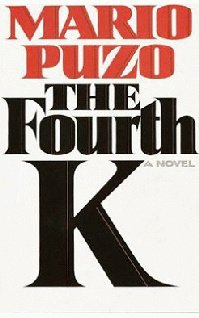
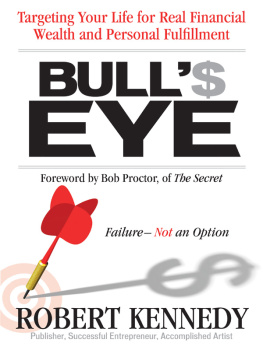
![Robert F. Kennedy - Thimerosal; Let the Science Speak [vaccine]](/uploads/posts/book/264361/thumbs/robert-f-kennedy-thimerosal-let-the-science.jpg)
